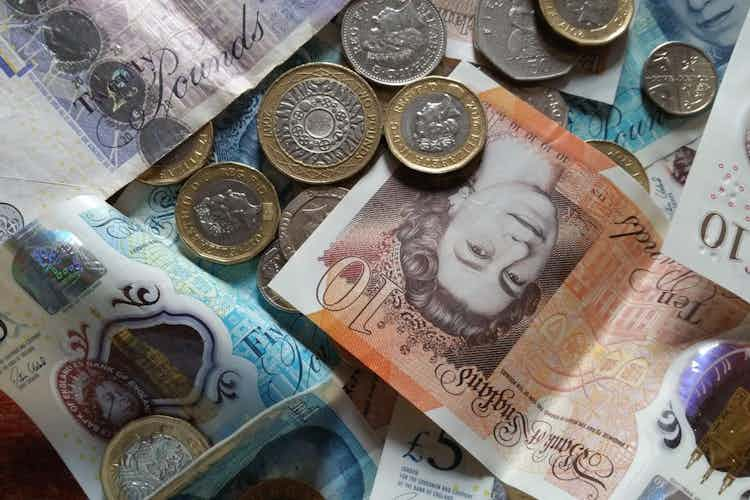The state pension is a regular income paid by the government and an essential piece of our retirement income, which may also include private pensions, annuities, and other sources of income.
The state pension is not subject to tax at source, which means that you will receive the total amount without any tax deductions. However, if your taxable income (including your state pension) is greater than your personal allowance, you must pay income tax. So, in this sense, yes, the state pension is taxable.
Some people who are eligible for the state pension will need to complete a self-assessment and submit it to HMRC to determine their tax liability. This may happen if you have several different types of income. It is, therefore, essential to keep accurate records of your state pension income, as you will not receive a P60 from the government.
It is vital to factor in the state pension when planning your retirement because it will make a significant difference in your overall standard of living in retirement. Therefore, you must understand how the state pension works, how it fits in with your other sources of income, and how it might impact your taxes.
Maximise your retirement fund with our panel of pension providers. Click on your chosen provider to get started!
What is the state pension?
The government pays the state pension weekly. You become eligible to receive it when you reach the state pension age - currently 66 for men and women.
The amount you get depends on your national insurance contributions. You need at least ten qualifying years of contributions to get any state pension. To receive the full state pension, you must have 35 qualifying years of contributions.
As of the 2022/23 tax year, the full new state pension is £185.15 per week (£9,627 per year). However, if you defer taking your state pension, you may be eligible for a higher amount.
It's vital to consider the state pension when planning for retirement. It can provide you with a regular income to help cover your living expenses in retirement. If you are nearing retirement age, it's crucial to determine if you are eligible for the state pension and how much you could potentially receive. This information can help you make informed choices about your retirement planning.
When does the state pension become taxable?
The state pension is taxable and counts towards your tax-free personal allowance. The personal allowance for the tax year 2022/23 is £12,570. The state pension isn’t taxed at source, but it will count towards your tax-free personal allowance.
If you are eligible for the full state pension and opt to receive it, you will use up £9,627 of your personal allowance, leaving you with around £2,950 that you can use for other sources of income.
However, if you go over that threshold, you will be liable to pay income tax at the appropriate tax rate. Depending on your income, this may be at the basic rate or higher rate. The income tax you'll have to pay at the end of the tax year depends on your total income. You will not have to pay national insurance contributions once you are retired.
What if you decide to defer your state pension?
You won’t need to pay tax on your state pension if you have decided to defer taking it, and you might also build up more state pension. Deferring your pension for a year will increase your entitlement by about 5.8%.
Types of income in retirement
There are several types of income in retirement, and most of them are taxable. You might be one of the many people for whom the state pension is not enough to live on, and you might not have built up sufficient private pension income.
As a result, you may choose to keep working after you reach retirement age to supplement your income and achieve a better standard of living.
You can also continue to pay pension contributions to private pensions and even claim pension tax relief in most cases.
Whether you work for an employer or make your money from self-employment, this income counts towards your personal allowance for tax purposes.
Your personal allowance also includes workplace pensions, including defined benefit plans, occupations pensions, defined contribution plans, and income from properties.
Each type of income may be subject to a different amount of tax. As such, it is vital to understand the tax implications of each before making any decisions about retirement income.
How to benefit from tax-free allowances
When you retire, you will be able to benefit from tax allowances in addition to your personal pension.
If your pension pot is worth less than £10,000, you will be able to take it all in one lump sum, and you'll get 25% tax relief on the amount. This means you won't pay tax on 25% of the total sum if you make a withdrawal.
If you have a defined benefit pension worth less than £30,000, you could do the same by taking out the entire amount as a lump sum and benefiting from a 25% discount on your tax bill.
However, if you have a defined contribution pension plan, you will need to contact your pension provider to check how you may take your pension. You are still entitled to a 25% discount, but you might not be able to take all the money built up in your pension plan as one lump sum right away.
Should you take smaller tax-free lump sums over time?
Taking smaller lump sums over time could make sense from a tax perspective. Each time you draw down a small amount, you benefit from 25% tax-free. If you take a small sum each tax year, you remain within the basic rate income tax bracket, so will pay less income tax overall.
If you take a large sum outright, this could result in a higher income tax bill because your total income could place you in a higher tax bracket.
It’s always best to speak to a financial adviser if you are unsure about the best way to optimise your pension.
What happens to your state pension if you move abroad?
If you decide to move abroad after you retire, you can continue to claim your state pension. However, depending on your new location, your state pension may not increase in line with inflation each year.
Furthermore, if you live abroad and opt to receive your pension in pounds sterling, you will be at the mercy of conversion rates around how much you receive in local currency. You may choose to open a bank account in your new country instead.
What about taxes?
The HMRC could still send you a tax bill if you’re considered a UK resident for tax purposes.
Many countries have double taxation agreements with the UK, which means you will only need to pay tax on your pension once, either in the UK or the country where you live.
However, you may be taxed twice if such an agreement is not in place. If this happens, you will be able to claim tax relief and receive a portion of the overpayment back.
Living abroad does not preclude you from paying the tax due to HM Revenue and Customs.
You can contact HMRC or the International Pension Centre via GOV.UK for further information.
How do you pay taxes when you retire?
If you have been an employee all your life, and you've paid tax through pay as you earn (PAYE), you may be confused about paying taxes in retirement.
If your only sources of income are a private pension and your state pension, your pension provider can pay your tax on a PAYE basis via your tax code.
But, if you have other types of income too, you might have several different tax codes, which makes things more complicated for you as a taxpayer.
You will need to tell HMRC if you have other types of income so that you make sure you’re paying the right amount of tax and may need to complete a self-assessment tax return.
The state pension and tax
You must consider how the state pension and its tax implications affect your financial planning for later life. The state pension is taxable and does count as income towards your personal allowance.
But if you defer taking your state pension, you may be eligible for a higher amount. Deferring your pension for a year will increase your entitlement by about 5.8%
Taking smaller lump sums over time could also make sense from a tax perspective. You could receive up to 25% tax-free and avoid paying high taxes.
Depending on your circumstances, you may be able to pay any tax you owe through PAYE. But if you have multiple sources of income in addition to your state pension, you may need to tell HMRC to avoid penalties.








